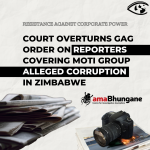US: Defendants File a Flurry of Motions Challenging the KPMG Tax-Shelter Case
Former KPMG tax professionals who are facing criminal charges over questionable tax shelters challenged the government yesterday to prove that they had broken the law.
The defendants filed more than two dozen motions in United States District Court in Manhattan yesterday, asking among other things that charges be dropped because no court had ever ruled the shelters in question illegal.
Carolyn Rule, a lawyer at Kostelanetz & Fink representing Richard Smith, a former vice chairman of taxes at KPMG and among the most senior former executives indicted, said yesterday that "the whole indictment is sloppy and peppered with words that have no legal meaning."
In joint motions, many of the defendants also asked the judge in the case, Lewis A. Kaplan, to dismiss the charges because they said they were being unfairly singled out among many other KPMG employees who created and sold similar tax shelters from 1996 through 2002 and who have not been indicted.
Nineteen people have been indicted in the case, including former senior executives like Jeffrey Stein, KPMG's former vice chairman; Richard Rosenthal, a former chief financial officer; and John Lanning, a former vice chairman for tax services.
Two people outside KPMG were indicted: Raymond J. Ruble, a former tax lawyer with Sidley Austin Brown & Wood, and David Amir Makov, who worked at an investment firm, Presidio Advisory Services, that collaborated with KPMG.
A revised indictment, handed up last October, accused the 19 of "devising, marketing and implementing fraudulent tax shelters" as well as preparing "false and fraudulent" income tax returns containing the shelter losses, and with hiding all of this from the government. The case is the largest criminal tax case ever filed by the government.
The indictment came less than three months after KPMG, one of the nation's largest accounting firms, narrowly avoided its own criminal indictment and instead reached a $456 million agreement in a deferred- prosecution deal with federal prosecutors over certain shelters.
One motion filed yesterday on behalf of several of the indicted, including Jeffrey Eischeid, a senior former KPMG partner, asked Judge Kaplan to dismiss the charges on the ground of "prosecutorial misconduct."
That misconduct, the filing said, included withholding from the grand jury important information about a gray area of tax law known as economic substance.
Mr. Eischeid's lawyer, Stanley S. Arkin, also submitted three internal KPMG documents, signed by the firm's top leadership, in an effort to bolster assertions by Mr. Eischeid and others that questionable tax shelters were a firmwide business at KPMG.
"Each of the strategies were repeatedly approved by KPMG after an exhaustive vetting process, and the company's approval of the strategies was communicated widely within KPMG," Mr. Arkin wrote in a memo accompanying the documents.
The internal documents include a letter from Stephen G. Butler, then the firm's chairman and chief executive, to partners in March 1998, outlining the firm's shift from traditional client services, like audit and tax preparation, to faster-growing products, like tax shelters.
"The rationale for our thinking is clear," Mr. Butler wrote. "Clients buy products."
"We see," he added, "an incredible opportunity to continue the aggressive growth curve we've seen over the past 18 months."
Mr. Butler's letter included new organization charts showing that some executives like Mr. Lanning, who are now among the indicted, were elevated to senior positions as part of the strategy.
Mr. Butler has not been accused of any wrongdoing.
An e-mail message to the partners in October 2003 from Eugene D. O'Kelly, then KPMG's chairman, about an impending "60 Minutes" program on the firm's tax shelter activities, urged the partners to assure clients "that we provide appropriate tax planning to our clients, which is fully supported by the Internal Revenue Code."
The message then urged partners with questions to contact Mr. Smith, who has since been indicted.
Mr. O'Kelly died of cancer last year at age 53.
Other defendants, some of them senior partners or top executives who once worked at KPMG are: Philip Wiesner, John Larson, Robert Pfaff, Mark Watson, Larry DeLap, Steven Gremminger, Gregg Ritchie, Randy Bickham, Carol Warley, David Rivkin and Carl Hasting.
Lawyers for David Greenberg, a former partner at KPMG in Los Angeles who is among the indicted, filed a motion asking that charges against him be dropped.
Those charges - that he issued opinion letters blessing a shelter called SOS - distinguished him from the 18 other individuals, who have been charged with dealing in other questionable tax shelters known as Flip, Blips and Opis.
Many of the motions yesterday were filed jointly, with many of the 19 defendants joining them. One joint motion asked the judge to force the government to turn over internal audit files for specific clients on certain questionable tax shelters.
One motion filed by Mr. Rivkin, a former KPMG partner, asked that the judge move the trial to a federal court in California.
- 186 Financial Services, Insurance and Banking



